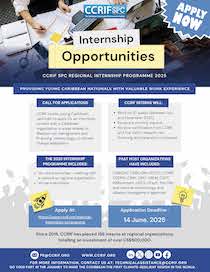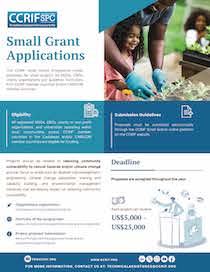CCRIF has 24 members – 8 more than the original 16 governments that joined in 2007 – 3 from Central America and 19 from the Caribbean and 2 electric utility companies. CCRIF helps to mitigate the short-term cash fl ow problems small developing economies suffer after major natural disasters.
A critical challenge is often the need for short-term liquidity to maintain essential government services until additional resources become available.
COAST is an innovative climate risk insurance mechanism to promote: food security; livelihoods of fisherfolk; resilient fisheries; sustainable management of coastal infrastructure; and disaster risk reduction in the Caribbean.
A snapshot of key milestones
Launched at the CDB Board of Governance Meeting in 2017, the Integrated Sovereign Risk Management Project will enable the development of a standardized integrated risk management framework for use by all Caribbean countries and will advance the institutionalization of country risk coordinators within countries who would act as a central point of contact for the purposes of managing a comprehensive multi-area risk portfolio.
The Caribbean Catastrophe Risk Insurance Facility (CCRIF) offers CARICOM governments an opportunity to transfer some of the economic risk they face from the impact of hurricanes and earthquakes.
The CCRIF model… an innovative risk transfer option, which can be included in disaster risk management strategies for countries





